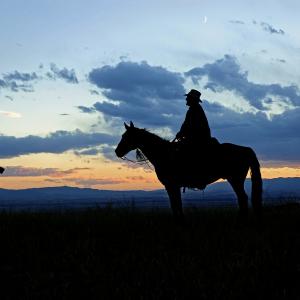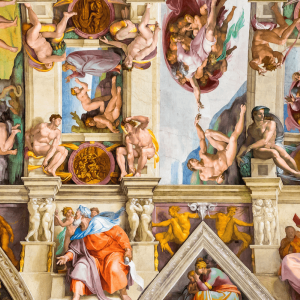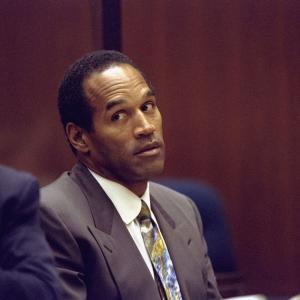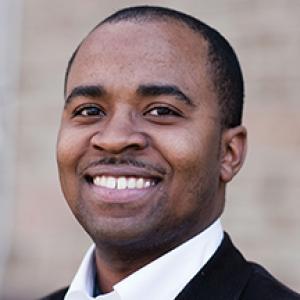
Danny Duncan Collum, author of the novel White Boy, teaches writing at Kentucky State University in Frankfort.
Posts By This Author
Fake Populism at the FCC
A more powerful corporate establishment is not exactly what Rust Belt Trump voters were looking for.
WITH EACH PASSING week of his administration, the epic scale of the deception Donald Trump pulled off last November becomes more evident.
In his last TV ad of the presidential campaign, Donald Trump decried “a global power structure that is responsible for the economic decisions that have robbed our working class, stripped our country of its wealth and put that money into the pockets of a handful of large corporations and political entities.” Two weeks earlier, when the AT&T-Time Warner merger was announced, Trump said: “As an example of the power structure I’m fighting, AT&T is buying Time Warner and thus CNN, a deal we will not approve in my administration because it’s too much concentration of power in the hands of too few.” Later he added, “Deals like this destroy democracy.”
Since then, of course, the great champion of the people has given us a Treasury secretary (Steven Mnuchin) who, as a hedge fund manager and banker, made a specialty not only of “robb[ing] our working class,” but foreclosing on their homes to boot. And now the candidate who condemned the AT&T-Time Warner merger as oligarchic and anti-democratic has become a president whose most recent comment on the merger was simply, “I haven’t seen any of the facts, yet.” Worse still, Trump has appointed a Federal Communications Commission chair (Ajit Pai) who has promised to undo the Obama-era net neutrality regulations, and who never met a media merger he didn’t like. For example, Pai, who has worked as a lawyer for Verizon, said he would have approved the Comcast-Time Warner Cable merger that the Obama FCC blocked in 2015.
Corporate Power vs. Common Good
A new book explains how we arrived at the era of populist billionaires.
2016 TURNED OUT to be the year that the American people woke up and realized that most of them hadn’t had a real pay raise in more than 40 years while the oligarchs in our top 1 percent had been making out like bandits. As a result, millions of our fellow Americans voted for a democratic socialist presidential candidate. But, as you may have noticed, even more just got really mad, then went to the polls and did something really crazy.
Sadly enough, we all could have avoided many of our current problems if we had just been reading In These Times magazine for the past 40 years.
That’s the takeaway from the recent book The Age of Inequality: Corporate America’s War on Working People, a Forty-Year Investigation by In These Times, edited by ITT contributing editor Jeremy Gantz. The book compiles chronologically arranged excerpts from the Chicago-based publication’s coverage of labor and the economy from its 1976 launch through the dawn of the Trump era. The result is a sweeping chronicle of the slow-motion coup by which the billionaire class seized all the levers of power in our erstwhile democracy and used them to siphon wealth upward from ordinary workers to the corporate elite.
The Pastor of Preschoolers
Fred Rogers provided a secure island of love and goodness for the country's children.
MISTER ROGERS’ Neighborhood began running on U.S. public television just over 50 years ago, in February 1968. The anniversary was marked in March by the airing of a tribute special, Mister Rogers: It’s You I Like, on PBS and the release of a Mister Rogers stamp by the U.S. Postal Service. In June, a documentary, Won’t You Be My Neighbor? by Oscar-winning director Morgan Neville, will hit the theaters. And, in Hollywood, a Fred Rogers biopic is forthcoming, starring Tom Hanks as the man in the sweater.
Rogers, who off-screen was an ordained mainline Presbyterian minister, was most famous as a sort of pastor to the nation’s preschoolers. Every day he looked into the camera and conducted a calm, face-to-face conversation with the kids about their feelings, especially their fears. Usually those discussions would lead into a Rogers-composed song. Then Rogers would dramatize those lessons in the Neighborhood of Make-Believe, where several puppet characters, most voiced by Rogers, and a few other adult humans populated a fanciful parallel universe.
When Mister Rogers’ Neighborhood started, the U.S. seemed to be falling apart.
The Class Undertow
When being the best isn't good enough.
THE TONYA HARDING saga was a Great American Novel of the 1990s waiting to be written—equal parts Theodore Dreiser and Three Stooges. Harding was the impoverished striver who muscled her way to the top of the hoity-toity world of women’s figure skating, only to be disgraced when her ex-husband’s buffoonish associates carried out a bizarre assault on a rival skater, Nancy Kerrigan.
The film I, Tonya delivers this story well, both as tragedy and as farce. It shows us the particular violence of frustrated hopes, malnourished emotions, and internalized self-hatred that passes from generation to generation like a plague in the lives of poor white people in America.
In 1972, when Tonya Harding was 2 years old, sociologist Richard Sennett and Jonathan Cobb published a book called The Hidden Injuries of Class. That phrase kept running through my mind as I watched I, Tonya. Sennett and Cobb profiled white working-class Americans who felt the pain of being disrespected and looked down upon, yet couldn’t help blaming themselves for that fact. One of their interviewees remarked, “I really didn’t have it upstairs to do satisfying work.”
Less than two years after Sennett’s book arrived, LaVona Golden, a foul-mouthed, chain-smoking wraith of a waitress (played by Allison Janney), intimidated a WASPy skating teacher into taking her daughter Tonya as a student. From that point on, in the movie, the girl’s life is blur of skating and abuse. Her mother torments her into giving her best on the ice, but comes up empty on empathy or affection. And the abuse gets physical. As a teenager (played by Margot Robbie), Tonya moves out to live with her boyfriend and ex-husband-to-be, Jeff Gillooly, and he hits her too.
A Wound That Still Bleeds
In the 1980s, almost 300,000 farms were lost forever.
OVER THE COURSE of 2017, I spent a lot of time thinking about how the catastrophe of November 2016 came about and a lot of time listening to country singer-songwriter Margo Price. Somewhere along the way, the two activities came together. Price’s artistic rise roughly coincided with Trump’s political one. She won the Americana Emerging Artist Award for 2016 with her first album,Midwest Farmer’s Daughter, and her second, All American Made, was released to much acclaim in October. She makes the kind of rough-hewn, class-conscious country rock that is one of my minimum daily requirements. Both of her albums are anchored by intensely autobiographical songs (“Hands of Time” and “Heart of America,” respectively) that spring from the same historic disruption in her family’s life: the loss of their family farm to foreclosure during the 1980s farm crisis. But here’s the kicker: Margo Price wasn’t even 3 years old in 1986 when her “daddy lost the farm ... [and] took a job at the prison.” She must have little or no conscious memory of farm life, or the foreclosure, but when she sits down with her guitar to pour out her soul, that’s what keeps coming. It’s a wound that, 30 years later, not only hasn’t healed, it hasn’t even stopped bleeding. Maybe that’s where we need to begin if we’re to understand what happened in rural America in 2016.
When the Artist Is an Abuser
What do we do with works of art made by men who do dark and despicable things?
IN THE PAST couple of months, since the sex crime revelations about Hollywood kingpin Harvey Weinstein, a historic corner has been turned regarding the fact that some powerful men abuse and degrade the women around them. In fact, we’re already talking about this as the post-Weinstein era.
But the wave of belated outrage that is just now cresting may have started building more than a year ago, with reports about Donald Trump’s sordid record as a serial harasser, molester, and adulterer, a history confirmed, on the record, by no less than 20 women in the weeks before election day.
For reasons that have been pretty thoroughly rehearsed, in these pages and elsewhere, that wasn’t enough to stop the Trump train. But the shock of Trump’s victory must have done something to embolden the next wave of women to speak out, at Fox News. And the example of Gretchen Carlson and Megyn Kelly must have made it easier for some of Weinstein’s victims to speak. And after them, the deluge.
Embracing Art's Sacred Power
Pope Francis maintains that "a work of art is the strongest evidence that incarnation is possible."
AMONG THE MANY hopeful initiatives to come from the Vatican under Pope Francis is an attempt to rebuild the church’s relationship with the arts. Francis declared this to be among his priorities in his famous 2013 interview with Jesuit priest Antonio Spadaro (published in the U.S. by the journal America). Francis listed among his inspirations painters Caravaggio and Chagall, the Russian novelist Dostoevsky and the German poet Friedrich Hölderlin, the music of Bach and Mozart, and the films of Fellini and Rossellini.
Lately the pope’s passion for art has taken tangible form with an interview-based book in Italian, whose title translates to My Idea of Art, and a documentary film of the same name, subtitled in six languages, that tours the Vatican Museum’s artistic treasures. In the book, Pope Francis argues that great art can serve as an antidote to contemporary greed, exclusion, and waste and maintains that “a work of art is the strongest evidence that incarnation is possible.”
Pope Francis came to office determined to downgrade some of the papacy’s pomp and splendor. He lives in a guest house instead of the papal apartment. He wears sturdy black walking shoes instead of those iconic red slippers and a silver cross where his predecessors went for the gold. He seems like the sort who might auction off the Vatican’s art collection and give the money to the poor.
But Francis instead sees the church’s involvement with the arts, past and present, as an occasion for evangelization.
The Divine Comedy for Our Time
I was reading "The Inferno" at my father's bedside as he was on his way toward paradise.
THIS SUMMER, in Mississippi, I sat by my father’s bed for three weeks and watched him die. After that, I drove one of my kids from Kentucky to New England for a college visit. Along the way, we climbed a mountain and spent the night in a rest area when we couldn’t find a motel room. Then, with five-sixths of my family and three weeks’ worth of camping gear packed into (and onto) an aging minivan, we drove to Banff National Park in Alberta, Canada. Along the way, in British Columbia, we went through an active wildfire and saw a tree explode into flames about 50 feet from our van. At Banff we saw a moose, two grizzly bears, and the vast acres of gravel left behind by the rapidly receding Columbia Icefield.
On every step of this long, strange trip, I carried with me a big, fat, well-worn paperback book, its margins filled with my youngest son’s class notes. So, what did I do this summer? I read The Divine Comedy by Dante Alighieri. Every night—well, most nights—I spent 15 or 20 minutes accompanying the poet of the early 1300s down into the depths of Hell, up the winding mountain trails of Purgatory, and on to the beatific vision of Paradise.
Missing Monuments
The way to deal with the legacy of slavery and the Confederacy is not to honor it or to erase it, but to fully and honestly recognize it.
AS A WHITE native Mississippian, I grew up among Confederate sympathizers. As an adopted Kentuckian, I live among them still. But the news cycles lately have been dominated by some fans of the Confederacy unlike any I’ve ever seen.
First there were the neo-Nazis in Charlottesville, who purported to defend the honor of Robert E. Lee by chanting slogans such as “Jews will not replace us!” Those twisted and deluded young men and women are ignorant of so much; how could they be expected to know about the thousands of Jewish Confederate soldiers, or the Confederacy’s Jewish attorney general?
Then came President Trump, a New Yorker, going all atwitter about the loss of the “beautiful” [Confederate] statues and monuments in “our cities, towns, and parks.” Closer to home, our Kentucky governor, Matt Bevin, a right-wing multimillionaire businessman who grew up in New Hampshire, accused Kentuckians who want to remove a statue of Jefferson Davis from our state capitol of a “sanitization of history.” (Bevin later denied he said this—though there is a recording—and asserted that he meant to call these efforts “revisionist.”)
Unlike Bevin, I’ve seen history “sanitized.”
How Facebook Is Commodifying Community
Unpaid organizers create genuinely meaningful support groups--and boost ad revenue.

Rawpixel.com / Shutterstock.com
YOU COULD SAY it’s been the best of times and the worst of times for Facebook Inc. This summer the social media platform’s number of monthly users reached 2 billion. That’s more than one-fourth of the world population, and Facebook has achieved that global reach while still off limits for more than a billion Chinese. More than half of Facebook users log in every day; in the U.S., one out of every five internet page views takes place on Facebook. The company is currently valued at $435 billion.
This success has come despite what should have been a truly dreadful year for the company’s image. Rapes, murders, and suicides have been live-streamed on Facebook. And at least some of those atrocities may have been provoked by the unparalleled opportunity Facebook offers to sociopaths and exhibitionists. In addition, in the past year Facebook was guilty of helping disseminate false information that helped elect Donald Trump. The social network has also been widely named as a major contributor to our increasingly toxic political culture, in which citizens never have to face facts that might contradict their prejudices. A 2016 study from the University of Pittsburgh even found an association between social media use, including Facebook, and depression among young adults.
When Journalism Jumped the Shark
O.J. Simpson was acquitted in 1995, and in the next decade U.S. media culture plunged into the abyss.
IN THE FIRST half of 2016, O.J. Simpson, who still resides in a Nevada prison for his bungled robbery of sports memorabilia, seemed to be everywhere. First, there was the FX series “The People vs. O.J. Simpson: American Crime Story,” a high-quality, behind-the-scenes dramatization of Simpson’s 1995 murder trial. Then came “O.J.: Made in America,” a seven-and-a-half hour epic ESPN documentary in which director Ezra Edelman finally gives the Simpson story its due as a landmark event in the history of U.S. attitudes toward race, celebrity, and domestic violence, and in the evolution of our mass media culture.
Among other things, the O.J. Simpson murder trial marked the end of an era in which professional journalists observed events, then summarized and framed them into a coherent narrative for public consumption. This legacy of the print age persisted well into the broadcast era. Until the late 20th century, live, real-time TV coverage was limited to things like sporting events, inaugurations, and moonshots, or national disasters. Otherwise, the world was presented to TV viewers in one neat, 30-minute daily package at 6 p.m.
Like everything else in American culture, this started to change as cable replaced over-the-air broadcasting and specialty channels proliferated. In 1979, C-SPAN started running gavel-to-gavel coverage of the generally somnolent proceedings of the U.S. Congress. But CNN came along the next year to make things such as a toddler falling down a well in Texas into a national melodrama. True, CNN also went wall-to-wall on things such as the Iran-Contra investigations and the first Iraq war, but in the months between legitimate big events it also whipped up essentially local stories, such as child disappearances or shark attacks, into manufactured national crises.
Disconnecting More Than Calls
Big Telecom has engaged in a concerted campaign to shed its landline phone business.

Brian A Jackson / Shutterstock
LAST MONTH we surrendered. We finally cancelled service on our home landline.
Despite the growing expense of traditional home phone service, we’d kept it this long for the same reasons that many people in rural America must. For one thing, cell phone connectivity was very weak at our house. To make a voice call you had to stand next to an upstairs window. And cell phone service goes away entirely when the electric power goes out at the tower. Where we live, the telephone lines are underground and unaffected by weather, which comes in handy when, in the dead of winter, an ice storm knocks out the power and you need to order a propane delivery.
So we kept our landline service, even when the quality deteriorated and dropped calls became a regular annoyance. Finally, a few months ago, they put up another cell tower somewhere near us that somewhat improved the connection, so we pulled the plug.
This isn’t just one rural family’s story. The 19 million Americans (14.5 million of us rural) who depend on landline service because of no or limited broadband access have for several years been the targets of a concerted campaign by Big Telecom to shed its landline phone business. The companies hope to use the transition to a wireless and digital future to wriggle their way out from under 80 years of regulatory history mandating universal service. Toward this end, they have worked through state legislatures, petitioned the Federal Communications Commission and even, according to consumer groups’ complaints to the FCC, simply refused to maintain and repair the existing landline network, all with the goal of eliminating their legal obligation to connect even the poorest and remotest American households.
Up Front and Unadorned
Loretta Lynn's honest ambivalence about motherhood was disturbing to the male gatekeepers of popular culture.
For 56 YEARS, Loretta Lynn has rarely paused from recording and touring. A career path that long is bound to have its ups and downs. But the past decade or so has definitely seen a Loretta Lynn renaissance.
It started back in 2004 with the album Van Lear Rose, a collection steeped in the rootsy alt-rock aesthetic of Jack White, who produced, played guitar, and even sang a duet with Lynn. Next came the 2010 tribute album Coal Miner’s Daughter, on which White’s band, The White Stripes, was joined by artists ranging from Alan Jackson and Martina McBride to Nashville outsiders Lucinda Williams and Steve Earle to perform a sampling of Lynn’s greatest hits. This year has seen the debut of a PBS American Masters documentary about Lynn and another startlingly good new album, Full Circle.
Both the title and the choice of material on Full Circle sound for all the world like a lifetime victory lap for the 84-year-old singer-songwriter. Telling the story of her career, the collection starts with a re-recording of the first song she ever wrote (“Whispering Sea”) and ends with a Willie Nelson duet on “Lay Me Down,” a song that features the line, “I’ll be at peace when they lay me down.” In between, she revisits a couple more of her older songs, and, for the first time, records the kind of traditional old-time material she heard growing up in the east Kentucky mountain community of Butcher Holler.
When Loretta Lynn came to Nashville in 1960, she was without precedent—a female country singer who wrote her own songs. She didn’t follow the rules of the music business because she and her manager-husband didn’t know them. Instead, Lynn came to town as a do-it-yourself phenomenon, promoting her records out of the trunk of the family car.
Rollin' on Down the Highway
HWY 62 is peopled with prisoners, deportees, the evicted, and other 21st-century American outcasts.
HIGHWAY 62 runs from Niagara Falls, N.Y., to El Paso, Texas, and is the only U.S. highway to connect Canada and Mexico. In my home state of Kentucky, it passes the Wild Turkey distillery at Lawrenceburg and the state maximum security penitentiary at Eddyville.
Further north it takes you to Buffalo, N.Y., the hometown of roots music singer-songwriter Peter Case. That’s why he picked HWY 62 as the title for his latest album, a collection that can be taken as a sort of “state of the nation” recording. The Christian Science Monitor even said that the album “plays like a John Steinbeck novel set to music.” And they have a point. Most of the album’s 11 songs are peopled with prisoners and deportees, the evicted and the gentrified, and other 21st-century American outcasts.
Unlike many folkie populists, Case comes by his sympathy for the down-and-out honestly, if a little foolishly. Back on that lost planet that was the1970s, he dropped out of high school to become a musician and eventually landed on the streets of San Francisco, hungry, homeless, and frequently drunk. This part of Case’s life is covered unsparingly in the blog/memoir that he keeps at petercase.com, some of which has become a book, As Far as You Can Get Without a Passport.
After a near-miss with the poppish-punk band The Nerves, Case got his ticket to the music business punched with The Plimsouls, whose hit, “A Million Miles Away,” was one of the high-water marks of jangly 1980s New Wave rock. But then, just before he could become really rich and famous, Case’s contrarian streak reasserted itself. He left the band and started what now looks to be the rest of his life as a singer-songwriter who sometimes records with the likes of T Bone Burnett and Ry Cooder, but most often performs solo with his own acoustic guitar and harmonica.
The Silicon Raj
The well-meaning 21st century colonialist may come in a T-shirt and a hoodie instead of khakis and a pith helmet.
A COUPLE years ago, when net neutrality (the principle that internet service providers must treat all websites equally) was threatened by the U.S. Federal Communications Commission (FCC), Facebook stood firmly in its defense. Google, Netflix, Amazon, Twitter, and other high-tech giants took the same stand. Companies that make their money providing content or mining data from web users need net neutrality in order to function.
This February, India’s equivalent of the FCC, their Telecom Regulatory Authority, had to decide an important net neutrality test case there. A huge, U.S.-based multinational came into the Indian market offering an internet connection that limited users to the parent company’s own site and a severely limited menu of other pre-selected sites. This company spent millions on an advertising campaign against the principle of net neutrality in India. But finally Indian regulators stood firm and net neutrality was upheld.
The strange twist here is this: The U.S.-based Goliath fighting net neutrality in India was Facebook.
An obvious conclusion here would be that Facebook thinks net neutrality is only good for rich countries. Indians must be too poor, too ill-educated, maybe even too brown to handle the freedom and responsibility that comes with an open internet. That impression was confirmed when a member of Facebook’s board of directors, venture capitalist Marc Andreessen, went on Twitter to proclaim: “Anti-colonialism has been economically catastrophic for the Indian people for decades. Why stop now?”
Now That's Grand Theft
Moore suggests invading other countries to steal their best ideas.
WRITING FOR a monthly magazine requires a long lead time. These columns are turned in several weeks before you see them, so they need to be timely, but not too timely. And that can be frustrating. But from now on, whenever I am tempted to complain about that fact of life, I will instead think of poor Michael Moore and the way current events have conspired against his latest movie, Where to Invade Next.
Way back in the 1980s, with the surprising success of his comic deindustrialization tale Roger and Me, Moore stumbled into a career as a feature-film director. But at heart he remains what he always was: an advocacy journalist. He wants to tell the story of his times in a way that will inspire people to act for change. In fact, his last job before he started making movies was a brief stint as editor of the monthly Mother Jones. Two constant themes resound through all his work, in any medium: outrage at the gross injustice of the U.S. economic and political order and faith in the capacity of ordinary Americans to change things.
But feature film is an even more unwieldy vehicle for telling the story of one’s time than a monthly magazine. The financing and logistics are byzantine and overwhelming, and the lead time is measured in years. A few times over the past three decades, Moore has managed to overcome those odds and get a message into the theaters at exactly the right time, most notably with his fall 2004 release of Fahrenheit 9/11. The national release of Where to Invade Next was scheduled for the same week as the New Hampshire presidential primary, the first primary of the season, apparently with the hope of hitting the election-year sweet spot again.
Vigilantes for a Lost Cause
We stole the land fair and square.

outdoorsman / Shutterstock
WHEN A HASTILY organized cowboy “militia” seized a national wildlife refuge near Burns, Ore., it brought the spotlight of 24-hour-a-day media coverage to a streak of angry alienation that had been building in the West for a long time.
In fact, as Washington Post reporter Amber Phillips noted, the conflict has existed “since the government stopped giving away land and started actively preserving some of it.” That would have been about the time that, in 1890, the superintendent of the U.S. census declared the American frontier to be closed. Shortly thereafter, President Theodore Roosevelt began serious efforts to conserve Western land and resources. In fact, it was Roosevelt himself who, in 1908, created the Malheur National Wildlife Refuge that the militia seized.
This armed occupation of federal property was ostensibly in defense of a father and son in Harney County, Ore., who were convicted of setting fires on federal land, but the confrontation was provoked and led by visiting members of Nevada’s Bundy family who, in 2014, staged a similar armed confrontation in defense of their patriarch, Cliven Bundy, grazing cattle on federal land without a permit.
The federal government owns a great deal of the land in much of the noncoastal West. That land belongs to all of us—all 320 million of us. We stole it fair and square, either from its Indigenous inhabitants, or from Mexico, or both. But most of us never see any of that land except in the movies while, for much of the past two centuries, local loggers, ranchers, and miners had easy access to it. As a result, many people in the West came to feel that the public land was not really the common heritage of a continental republic but in some real sense “their” land. Many of them depended upon it for their livelihoods. That’s what they were supposed to do when the frontier was opened. They were supposed to establish settlements, exploit the natural resources, fend off the Indigenous people, and make the West safe for the railroads.
The Substance of Truth
Courage was sometimes in short supply among the mainstream media.

stocksolution / Shutterstock
IN 1976, STILL fairly early in his epic career, Robert Redford played Bob Woodward in All the President’s Men, a tense and ultimately triumphant retelling of the Washington Post Watergate investigation that led to President Richard Nixon’s resignation.
Now, near the end of that same career, in the movie Truth Redford plays CBS News anchor Dan Rather, in the story of how Rather stumbled, fell, and was pushed out of big-time journalism in the course of pursuing the truth about George W. Bush’s mysterious Vietnam-era “service” in the Texas Air National Guard.
The great moral test for many men of the baby boom generation was “what did you do about the draft?” Questions about how he had eluded the draft dogged our first baby boomer president, Bill Clinton. Then the campaigns of 2000 and 2004 brought the historic test of the baby boom soul front and center, pitting Bush, a baby boomer born to privilege and pro-war politics, against two Democrats, also born to privilege, who volunteered for the military and actually served in Vietnam. Al Gore had a noncombat role and was only in Vietnam for five months, but still, he was there, in a uniform, sometimes carrying a gun. As a Navy lieutenant, John Kerry was honored for courage in battle.
Bush, on the other hand, joined a platoon of other fortunate sons in the Texas Air National Guard. He trained as a pilot, then stopped flying and didn’t show up for his mandatory pilot physicals. He got permission to transfer to a Guard unit in Alabama so he could work on a Republican senatorial campaign, but only one Alabama Guard member claims to have seen him. Finally, he disappeared to Harvard Business School and may have never completed his required days of service.
There were stories about Bush’s wartime shirking in 2000. In 2004, the irony and outrage were intensified when W.’s opponent, Kerry, a bona fide war hero, was subjected to slander from the notorious “Swift Boat Veterans for Truth” PAC.
Another Way is Possible
An interview with Andrew Wilkes on Christianity and socialism.
Andrew Wilkes is an African Methodist Episcopal minister who serves on the editorial board of Democratic Socialists of America’s online journal, Religious Socialism. Danny Duncan Collum interviewed him in October 2015. Click here to read more about Christianity and socialism in this month's Sojourners.
Sojourners: Why have you chosen to identify yourself as a socialist?
Andrew Wilkes: What began to change my thoughts is when I realized that another way of organizing land, labor, and capital is possible and was already happening locally, regionally, and in some respects nationally. Gar Alperovitz’s book What Must We Then Do?, John Nichols’ book The “S” Word, and Martin Luther King Jr.’s witness of a black social gospel and democratic socialism all proved seminal to me.
What does it mean to you to call yourself a socialist? Socialism, on a basic level, prioritizes human rights over property rights and our obligations to one another over conventions about the natural, efficient operations of markets. Socialism means a way of making decisions about the use of resources that seeks to end preventable human misery more than turning an ever-increasing profit. It’s an ethical vision that also entails shared sacrifice for mutual gain—for instance, paying more in taxes to support health care, education, and other services that are free at the point of access.
I do not take socialism to mean the complete abolition of private property, contracts between individual parties, or the utter erasure of markets. Instead, socialism for me means the ascendancy of meeting human needs through public provision, cooperative ownership, and private businesses that include collective bargaining and government regulation. It also means that working individuals who produce goods and services have a significant say in shaping, owning, and influencing the institutions that shape their day-to-day quality of life.
How do you see those ideas relating to your Christian identity and Christian ministry? I joined the Religious Socialists of DSA (Democratic Socialists of America) to find an institutional outlet for my political commitments. I think it’s inaccurate to suggest that the Bible can be marshaled in direct support of socialism. I do think that every Christian has to inquire about the society that best represents or foreshadows the dreams and desires of God for humanity. For me, the kind of socialism I’ve just described is the best society.
Should Christians be Socialists?
WE NEED TO overthrow...this rotten, decadent, putrid industrial capitalist system.”
So wrote Dorothy Day, the Catholic Worker co-founder whom Pope Francis recently held up to the U.S. Congress as a great exemplar of the American spirit.
In the centuries since the rise of capitalism, millions of Christians, like Day, have sought not only to bind up the wounds of the poor, but also to create a world in which people will not be impoverished by low wages, unemployment, discrimination, or plain bad luck. Day ended up advocating a sort of communitarian anarchism. But for many other Christians—from Mother Jones to Dom Hélder Câmara to Martin Luther King Jr.—the name for that alternate system has been “socialism.” And, after long decades during which acceptance of the existing economic order seemed inevitable, in 2016 the question of socialism is not only on the agenda again but, in the Democratic presidential primaries, on the ballot.
This is especially surprising because any alternative to corporate capitalism was widely declared dead after the 1991 collapse of the Soviet Union, which had called itself a socialist state and imposed its rule by force. Its failure, in the end largely economic, was rightly seen to discredit the Marxist-Leninist version of socialism that relied on centralized, coercive state power to manage the lives of its citizens. In the wake of the collapse, the West flooded the formerly communist states with free-market economic gurus to guide a sort of capitalist extreme makeover, and the end of history was declared.
But then global capitalism had its own collapse in 2008. In the U.S., the dream of upward mobility is dying. According to the U.S. Department of Labor, since 1973 the inflation-adjusted average hourly earnings for workers with a high school degree or less have declined; more-educated workers have barely stayed even. Meanwhile, according to the Economic Policy Institute, the inflation-adjusted income of the top 1 percent has risen 138 percent since 1979. A generation has arisen that sees its prospects declining. For this generation, “socialism” has little to do with the Soviet Union; it’s just another insult that Fox News hurls at the president most of them supported.
So for the first time in 100 years, a democratic socialist, Sen. Bernie Sanders of Vermont, is waging a serious U.S. presidential campaign. Since his campaign began, the percentage of Americans who say they are willing to vote for a socialist has risen. In fact, for the past five years, U.S. public opinion polls have shown increasingly favorable associations with the word “socialism.” Among millennials, the S-word’s positives are now higher than its negatives.
Even in the Catholic Church, consideration of socialist alternatives no longer seems taboo. Since the days of Pope John Paul II, liberation theology has been on the outs in Rome, but last year Gustavo Gutierrez, who gave the movement its name with his 1971 book, A Theology of Liberation, was welcomed to the Vatican to address a conference. This is the same man who famously proclaimed that Christian theology needs to speak “of social revolution, not reform; of liberation, not development; of socialism, not modernization of the prevailing system.”















